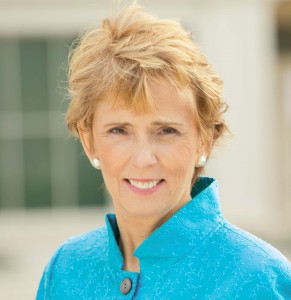POST: Learning Non-Technical Skills Saves Patients’ Lives
 I turned the corner and there it was. The Death Star, as locals call it, because it’s star-shaped, imposing, and has a helipad on the roof. Also known as the Queen Elizabeth University Hospital in Glasgow—a state-of-the-art, 14-floor hospital completely interlinked, part of the National Health Service in Scotland—it was the site of the NOTSS Master Course I was invited to join.
I turned the corner and there it was. The Death Star, as locals call it, because it’s star-shaped, imposing, and has a helipad on the roof. Also known as the Queen Elizabeth University Hospital in Glasgow—a state-of-the-art, 14-floor hospital completely interlinked, part of the National Health Service in Scotland—it was the site of the NOTSS Master Course I was invited to join.
In my exploration of what makes a good surgical team, I came across “Teamwork Assessment Tools in Modern Surgical Practice.” That article inspired me to write Can Surgery Teamwork Save Your Life?, describing one of the best assessments, Non-technical Skills for Surgeons (NOTSS).
Any excuse to travel is all right with me. So when the Royal College of Surgeons-Edinburgh offered a NOTSS Master course on a day I could be available, I headed to Glasgow for a few days of Scottish music, single malt scotch, and museums before the course.
Training surgeons in non-technical skills
NOTSS is a program to train surgical residents (and more senior physicians) in non-technical skills—the behavioral pieces of optimal surgical performance. Mr. Simon Paterson-Brown (UK surgeons who are accepted into the Royal College are called Mr, Miss, Ms, or Mrs rather than doctor) and Mr. Simon Gibson kicked off the day with the usual medical statistics about using checklists in the operating room, or theatre, as it’s known in the UK. Routine use of checklists halves surgical mortality, from 1.5% to 0.8%
Using a checklist might have prevented Sheila Hynes death in March 2017, after her new heart valve was put in upside down. The two Simons asked us, “What goes wrong in your theatre?” Reasons for errors include the pressure of time, distractions, last minute changes, inadequate preparation, assumptions, inadequate help, incomplete information, and the “system”—people, resources, and how they are dispersed.
Human factors, leadership, and communication, all included in non-technical skills, are the top three contributors to Sentinel Events, unexpected events in a healthcare setting that kill or harm patients and that are unrelated to the patients’ illness.
As I learned, NOTSS is not about bad guys, remediation, catastrophic failure, blame/attribution, or extraordinary events. And there is no single vaccination for immunity.
NOTSS is about normal people, places, organizations, and systems. It’s about recognizing complexity and optimizing performance.
Situational awareness
High on the list of necessary skills for effective surgeons is situational awareness, or being aware of what’s around you even as you focus on the task of surgery. Check out this video to test your own situational awareness.
How can we enhance situational awareness?
- Pre-task briefing
- Sterile cockpit concept: Avoid unnecessary distractions
- Active information gathering through scanning
- Self-checking
- Cross checking: Ask other team members
- Re-check information after interruption or distraction
- Use open rather than leading questions
- Encourage junior staff to speak up if concerned
- Realize that even experts can make errors . . . and put a heart valve in upside down
- Have a safe word, such as “watermelon,” which means stop. And then use it. And stop.
Self-check and CUSS
I’M SAFE is the mnemonic for a self-check list at the beginning of the day and when starting new or major procedures. Are you having any negative effects from the following?
- Illness
- Medication (e.g., codeine for a toothache, antihistamines for a cold, coping with a runny nose behind a surgical mask)
- Stress (personal relationships and time pressures)
- Abuse (substance and alcohol, and its after-effects)
- Fatigue
- Emotion (rudeness, anger, aggression, and personal grief) and Eating (impact of hypoglycemia)
While observing surgeons, use CUSS for graded assertiveness:
- I am Concerned about what you’re doing
- I don’t Understand why you are doing what you’re doing
- I am Seriously worried about what you’re doing
- Please Stop what you are doing
In 1977, KLM Flight 4805 and Pan Am Flight 1736 collided on the runway in Tenerife, killing 583 people, the deadliest airplane accident in history. Captain Veldhuyzen van Zanten, KLM’s chief of flight training, and one of their most senior pilots took off without clearance, smashing into the other 747 on the runway. In 2009, Captain Chesley “Sully” Sullender landed a crippled airplaneon the Hudson River, with no loss of life. In the former, other crew members were reluctant to question the captain. They died. In the latter, the team concentrated on doing the right thing at the right time. They lived.
What do high-performing teams have in common?
According to TeamSTEPPS, they
- Are responsible for ensuring that team members are sharing information, monitoring situational cues, resolving conflicts, and helping each other when needed;
- Manage resources to ensure the team’s performance;
- Facilitate team actions by communicating through information exchange sessions, such as after-action reviews;
- Develop norms for information sharing; and
- Ensure that team members are aware of situational changes to plans
Good quality operating room leadership leads to decreased errors, reduced costs, improved safety, and increased compliance with standard operating procedures (SOPs). Despite that, 47% of surgeons believe decisions of the “leader” should not be questioned, as did the crew members of Captain van Zanten. Contrast that with the current 7% of pilots, a smaller percentage after changes were implemented following the Tenerife crash.
One solution for the 47% is to send your surgeons to Scotland for training. Another is for them to take the course at the annual American College of Surgeons meeting, where there is often a workshop on this topic. The book, Enhancing Surgical Performance, offers a detailed road map for “structuring observation, rating, and feedback of surgeons’ behaviors in the operating theatre.” Anyone involved in surgery—surgeons, nurses, residents, students—will learn what to look for and how to perform to increase staff well-being and decrease patients’ deaths and errors in the surgical suite. I use this assessment with my surgeon coaching clients as I observe them in the operating room with their teams. The experience changes how they approach the surgery process. Becoming adept at non-technical skills literally changes lives for the better—patients’ lives.
As the great sage Yoda said,
“Do. Or do not. There is no try.”
Published on The Doctor Weighs In
[mashshare]CATEGORIES:Recent Blog Articles

In Medicine, The “Soft” Skills Are Essential
Michael’s Story: The Beginning “I’m straightforward, to the point,” said Michael, the CEO at a large inner-city hospital. “The people I work with—they may not like me, but they know I’m right.” “What else?” I said to Michael, whom I had just been retained to coach. “I just wish they understood me. I do what’s […]
CATEGORIES: Coaching Emotional Intelligence Physician Leadership

Dr. Margaret Cary spoke at the American Society of Hematologists
December 3, 2018 Dr. Cary delivered an interactive presentation on Women’s Leadership at the Women in Hematology reception at the ASH’s annual meeting of nearly 28,000 attendees in San Diego.
CATEGORY: Coaching

What We Can Learn About Leadership from The Boss
A Bruce (The Boss) Springsteen fan reflects on what her coaching clients can learn about leadership from him.
CATEGORY: The Doctor Weighs In

Develop a Coaching Culture
What might you do to develop a coaching culture in your office, in your organization? “I know I blow up and get angry. I am protective about my patients and the physicians in my department and I can’t help myself.” Dr. Leonard was one of my coaching clients, a surgeon who had left a trail […]
CATEGORIES: Coaching Physician Leadership

The Value of Coaching in Medicine
With Jack Penner Jack and I recently joined Dave Etler, Administrative Services Coordinator for Student Affairs and Curriculum with Carver College of Medicine at the University of Iowa, and Carver medical students Amy Young, Aline Sandouk, and Mark Moubarek at The Short Coat Podcast for “weird news, fresh views, helpful blues, and interviews by students, for students” […]
CATEGORY: Medical Education

The Value of Presence in Medicine
When an American doctor is asked to examine her friend’s mother in a Chinese hospital, she realized it was her presence and caring that really mattered. Zhuo came with a self-assured attitude, lots of stories, and several films under her belt. I had volunteered to host a film director during the Denver International Film Festival. […]
CATEGORIES: Emotional Intelligence Quality of Care
